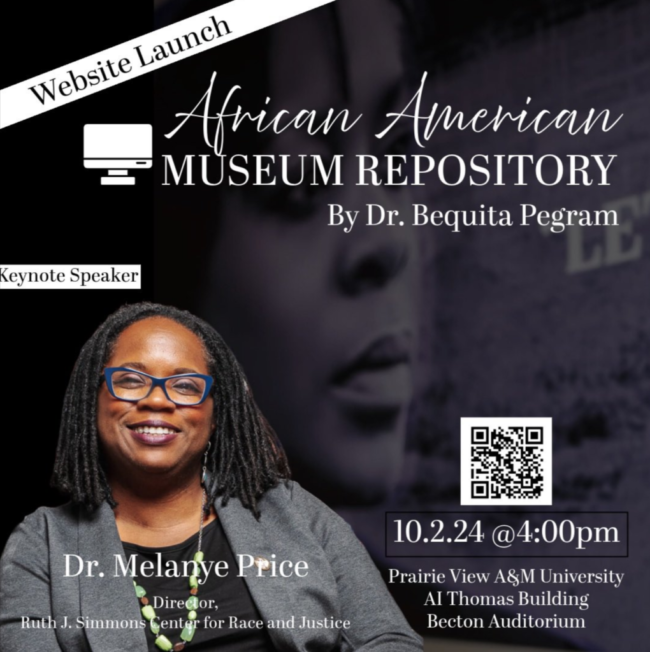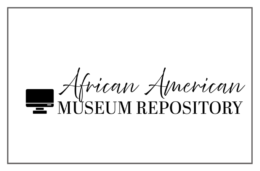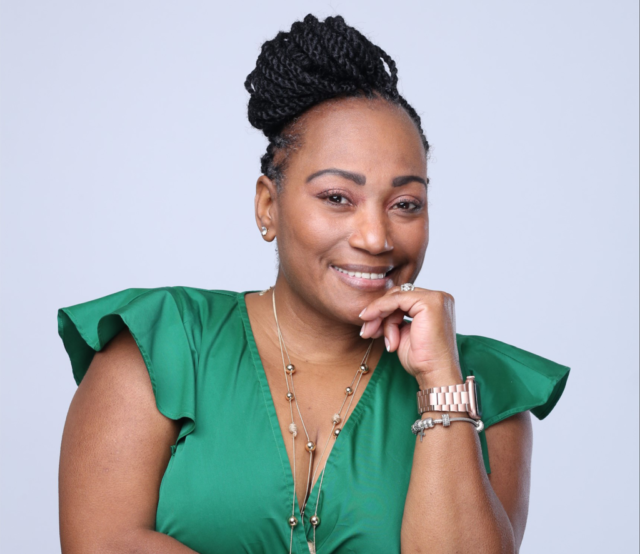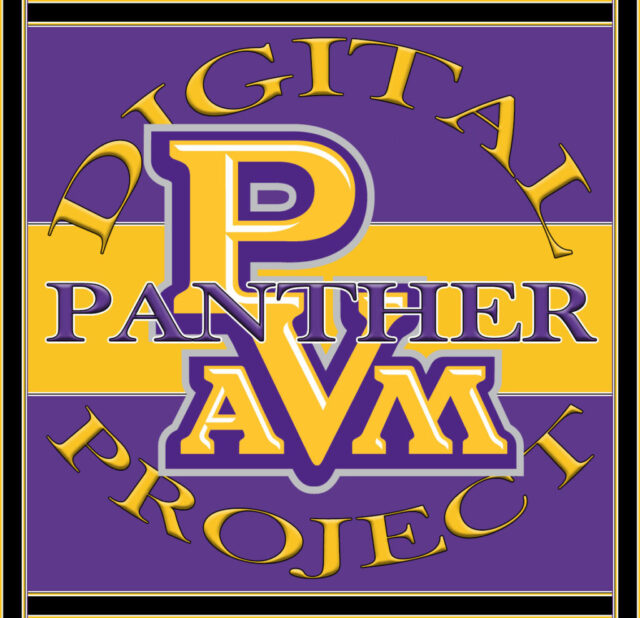Website Launch of the
By Evelyn Todd
“Welcome to the African American Museum Repository, your comprehensive guide to exploring African American museums across the United States.” This greeting brought me so much joy when I clicked the link to view the brand-new website at Dr. Pegram’s Website Launch.
On October 2nd, I was honored to attend the Launching Event of Dr. Pegram’s labor of love and curiosity. The event was held in the A. I. Thomas Auditorium, and it featured a handful of respected historians, professors, and student researchers as speakers. Once Dr. Goodwin began the event by welcoming us, Dr. Pegram took the stage to introduce her project, the African American Museum Repository.
I reached out to Dr. Pegram to get her exact remarks on the origins of this project. She shared with me that “The website idea came out of my love for museums and wanting to be able to create summer road trips, finding different museums, and different states when I was unable to find a list of museums per state. I thought this was a great project to bring forth for students, for the public, and also for scholars. My research goal is to be able to look at how the existence of museums impacts the perception of African Americans.”

With her research goal in mind, she had a couple of professors and historians take the stage to share their thoughts on this project. Leading the way was the Keynote Speaker, Dr. Melanye Price, the Director of the Ruth J. Simmons Race and Justice Center at the university. She emphasized the importance of all but especially young Black people knowing their history. After asking the audience, mainly filled with college students, if we knew who Rosa Parks was, she asked us to raise our hand if any of us ever heard her speak. None of the students raised their hands. Dr. Price went on to explain that not only was Rosa Parks a public speaker, but she was not the first black woman to get arrested for not giving up her seat on a bus. Sharing more details with us about the impactful life of Rosa Parks, she then segued into a story about how a young black man assaulted and robbed Rosa Parks in her later years of life. He just thought he was robbing some old lady. He had no idea who Rosa Parks was. Tying it into the museum repository, Dr. Price highlighted the importance of this achievement. It gives young people an accessible tool to be adventurous and educate themselves in parts of history they might not have known otherwise.
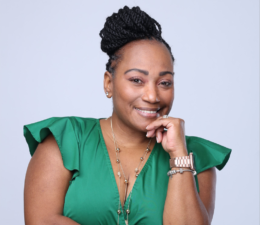
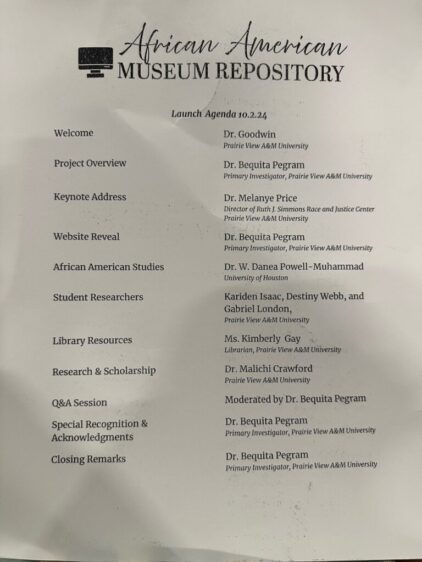
Next, Dr. Pegram came back up and gave us the QR Code to access the website. I immediately went onto the website and scoured every page. It was fascinating to see that she had done more than expected. The project was more than a place to find new African American museums across the United States. Dr. Pegram and her research time created lesson plans from early childhood to graduate level. Again, this showcases that the project’s overall goal is to create opportunities for all people to expand their knowledge and perception of African American history, life, and culture. I appreciate that there is also a page for news posts to keep visitors up to date with “blog posts, informative events, and community connections.”

Once the website was accessible, Dr. Pegram had the other speakers share their thoughts. Dr. W. Danae Powell-Muhammad, African African-American studies professor at the University of Houston, spoke of the importance of the website, how this is a beautiful tool at the disposal of the students, and the irony of her first time visiting the repository. When Dr. Pegram first shared the website with her in preparation for the launch, Dr. Powell-Muhammad thought it was for her personal use and began looking up the different museums listed within the website for future visits. This is a perfect situation as it is exactly what the museum repository is for.
Following Dr. Powell-Muhammad, three of Dr. Pegram’s student researchers, Kariden Isaac, Destiny Webb, and Gabriel London, shared about their roles as researchers and what they found interesting about participating in the project. They spoke of learning about the number of museums that actually exist in the country and seeing how valuable and necessary this research is for the public, not just those with a scholastic perspective. Ms. Kimberly Gay, Head of the References and Information Services in John B. Coleman Library, shared a thought that had occurred to me the moment I heard of this project. The African American Museum Repository is, in its own interpretation, a virtual Green Book. In the way that the Negro Motorist Green Book provided Black people driving routes, lodging options, food stops, and much more, the African American Museum Repository offers us a digital route to find places across the country where we have been remembered, honored, and upheld as a people and culture. She also led us to the Oxford African American Studies Center (accessible through the PVAMU Library website) and showed us how the repository will positively impact other research being done about African American museums.
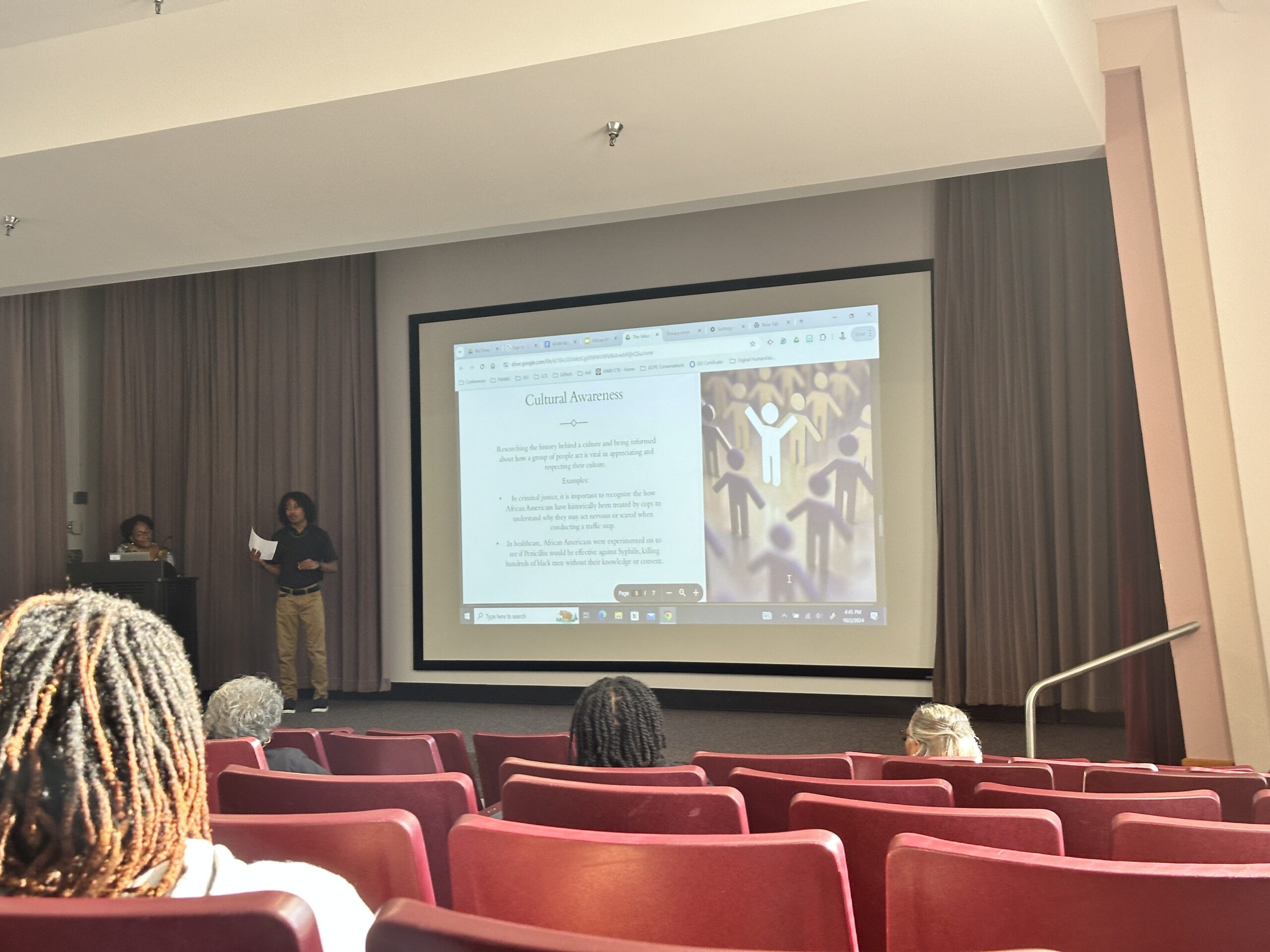
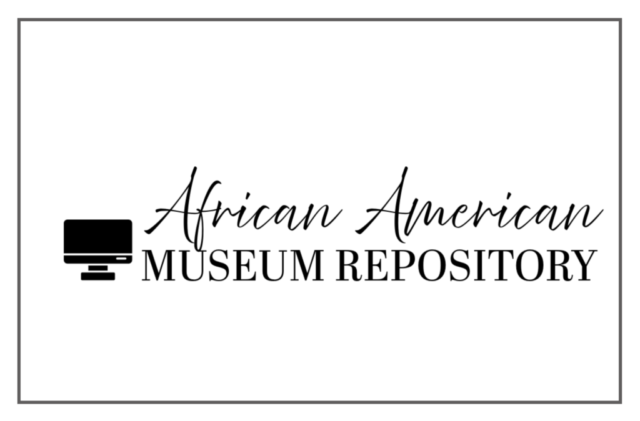
Closing it out, Dr. Malachi Crawford, PVAMU History professor shared some ideas that stuck with me. He pointed out what it would be like to have a Black natural sciences museum and what that could look like. He talked about how this repository can impact the way we think of Black history, especially knowing that Black history did not begin when our people were out on those boats. Then, he asked a VERY important question. One that I and other students in the DPPP have asked multiple times: Where is Prairie View’s Museum? Whether it is for the city, the university, or both, why do we not have a museum? This would benefit us all.
At the end of the event, Dr. Pegram came back up for her closing remarks, thanking everyone again for attending, and supporting her labor of love and curiosity. I truly enjoyed attending the event and learning about the repository. All in all, it reminded and encouraged me how powerful it is when we decide to put our curiosity to work instead of leaving it up to others to figure it out. Research and knowledge are gifts that are accessible to everyone, and Dr. Pegram’s African American Museum Repository is brilliant proof of this.
Done!! 💜💛🖤#doctorate #DrPegram #pvamu pic.twitter.com/X32JF9AspR
— Bequita Pegram Ph.D. (@BequitaPegram) July 26, 2023
